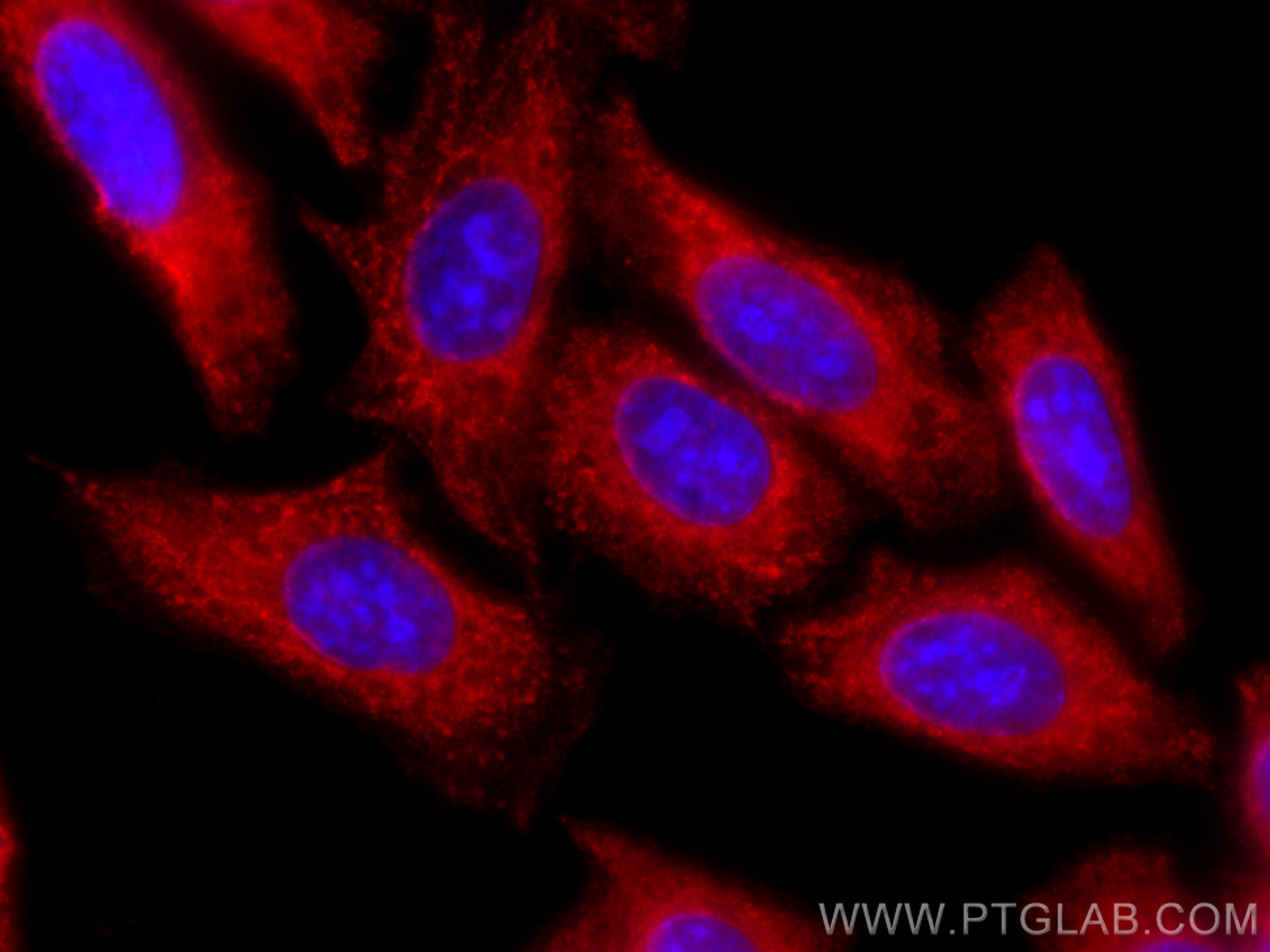Tested Applications
| Positive IF/ICC detected in | HepG2 cells |
Recommended dilution
| Application | Dilution |
|---|---|
| Immunofluorescence (IF)/ICC | IF/ICC : 1:50-1:500 |
| It is recommended that this reagent should be titrated in each testing system to obtain optimal results. | |
| Sample-dependent, Check data in validation data gallery. | |
Product Information
CL594-67805 targets USP11 in IF/ICC applications and shows reactivity with Human samples.
| Tested Reactivity | Human |
| Host / Isotype | Mouse / IgG1 |
| Class | Monoclonal |
| Type | Antibody |
| Immunogen | USP11 fusion protein Ag19058 Predict reactive species |
| Full Name | ubiquitin specific peptidase 11 |
| Calculated Molecular Weight | 963 aa, 110 kDa |
| Observed Molecular Weight | 110 kDa |
| GenBank Accession Number | BC000350 |
| Gene Symbol | USP11 |
| Gene ID (NCBI) | 8237 |
| RRID | AB_2923925 |
| Conjugate | CoraLite®594 Fluorescent Dye |
| Excitation/Emission Maxima Wavelengths | 588 nm / 604 nm |
| Form | Liquid |
| Purification Method | Protein G purification |
| UNIPROT ID | P51784 |
| Storage Buffer | PBS with 50% Glycerol, 0.05% Proclin300, 0.5% BSA, pH 7.3. |
| Storage Conditions | Store at -20°C. Avoid exposure to light. Stable for one year after shipment. Aliquoting is unnecessary for -20oC storage. |
Background Information
USP11(Ubiquitin carboxyl-terminal hydrolase 11), also named as UHX1, is a deubiquitinating enzyme controling many intracellular processes, including cell cycle progression, transcriptional activation, and signal transduction. There are four bands of 120 kDa, 55 kDa, 50 kDa and 44 kDa to be detected in HeLa extract by western blot and the smaller proteins may be degradation products, some other spliced products could possibly correspond to the smaller proteins and possess functions(PMID:12084015). This protein belongs to the peptidase C19 family.
Protocols
| Product Specific Protocols | |
|---|---|
| IF protocol for CL594 USP11 antibody CL594-67805 | Download protocol |
| Standard Protocols | |
|---|---|
| Click here to view our Standard Protocols |



